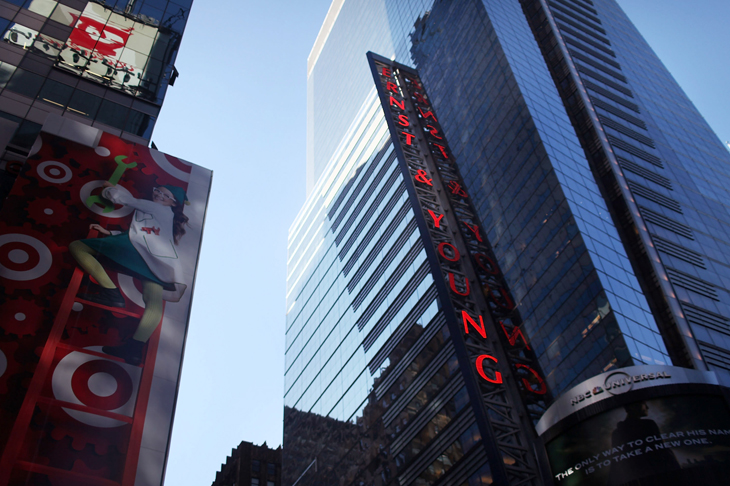As disasters go, 9/11 is now much less of a problem for the world than 9/15. There are no widespread media warnings of a possible repeat of the World Trade Centre disintegration of September 11, 2001. But there are plenty of widely publicised fears of another September 15, 2008 Lehman-style financial sector collapse that could initiate a new World Financial Crisis. The horror of 9/11 that killed a Lehman Bros worker and destroyed the world headquarters building of the fourth biggest investment bank in the US saw Lehman move uptown to near Times Square – and further into the mire of the sub-prime dishonesty that would ultimately ruin a firm that had been capitalised at $US60 billion in America’s biggest-ever bankruptcy. Last week’s 10th anniversary of the Lehman collapse has prompted serious concerns about whether lessons have been learned that would prevent a repeat dose as global debt has soared by 44 per cent since then.
Headlines like ‘Another crisis just years away – top bankers warn of new threats to financial system’ and ‘A Lehman-style event could happen again’ have coincided with the revelations at the Hayne Royal Commission of the failure of our regulators to keep the Big Four local banks honest. One gloom merchant, veteran financial commentator Bob Gottliebsen warns of the dangers of the hidden world of derivatives where banking executives are taking too many risks and hiding their mistakes in the hope of trading out of them. ‘Today’s markets are even more connected to derivatives than in the time of Lehman. Another Lehman will take place and the derivative-driven crisis will be bigger than 2008’, he says. The Australian’s John Durie agrees that ‘the next crash is coming – it just depends on how and when’ and welcomes the radical changes to Asic’s governance structure under new boss James Shipton, with legislation to give Asic more powers now before the Senate. Durie welcomes Shipton’s questioning whether Australian financial institutions have really changed their culture sufficiently and are ‘just sailing on untroubled’, having largely avoided the GFC crisis by governmental action protecting the ‘too-big-to-fail’ banks. While it is true that Australian banks are materially stronger than they were 10 years ago, with greater capital reserves and healthier loan books, Royal Commission revelations of dishonesty and the class action over ANZ’s disgraceful misleading of the market in its undersubscribed 2015 $2.5 billion capital raising, indicates their social licence has seriously deteriorated. But even without another debt crisis, is capitalism doomed?
At next year’s federal election Australians should heed a warning in a seminal book written three-quarters of a century ago by renowned economist Joseph Schumpeter. He reluctantly concluded, in Capitalism, Socialism and Democracy, that capitalism had within it the seeds of its inevitable destruction, not because of its failure – but because of its success. By tending toward big business that results in raising the standard of living of the masses but distributes its benefits unevenly, capitalism generates the social tensions that undermine it. ‘Capitalism is so successful it creates, educates and subsidises a vested interest in social unrest and underwrites a class of hostile intellectuals who have no direct responsibility for practical affairs and little experience in managing anything… They are playing an important role in capitalism’s demise by developing critical ideas against free markets and private property, even though these institutions are necessary for their existence’.
The ALP, the Greens and the universities, who fit this to a tee, are pushing public policy to be increasingly hostile to capitalist interests. ‘Bureaucratic antipathy to capitalism, added to the legislative, administrative and judicial practice born of that hostility, will eventually cause entrepreneurship and capitalism to cease to function… Most alarming of all, the bourgeois family may disintegrate as men and women become aware that children cease to be economic assets’. So the end of capitalism will not be by revolution, but by social democratic parties being elected as majorities vote for the welfare state and place restrictions upon entrepreneurship that will burden and destroy the capitalist structure. A Shorten government would prove Schumpeter right.
Got something to add? Join the discussion and comment below.
Get 10 issues for just $10
Subscribe to The Spectator Australia today for the next 10 magazine issues, plus full online access, for just $10.
You might disagree with half of it, but you’ll enjoy reading all of it. Try your first month for free, then just $2 a week for the remainder of your first year.














Comments
Don't miss out
Join the conversation with other Spectator Australia readers. Subscribe to leave a comment.
SUBSCRIBEAlready a subscriber? Log in